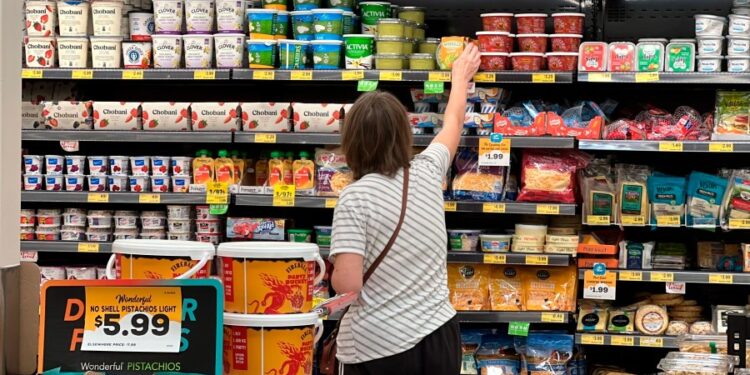
Jan 14 (Reuters) – The U.S. Food and Drug Administration on Tuesday proposed that food companies display nutrition labels on the front of the packages, in its latest push under the outgoing Biden administration to help consumers make healthier choices.
The agency’s nutrition priorities are part of a government-wide effort to fight the country’s chronic disease crisis, including health problems such as diabetes and heart illnesses.
If finalized, the proposal would give consumers readily visible information on the front about a food’s saturated fat, sodium and added sugars — the three nutrients directly linked with chronic diseases when consumed in excess — with details that interpret these contents as “low”, “med” or “high.”
The World Health Organization in its draft guidelines in October had said packaged food and drinks should have easy-to-read nutritional information on the front of the products.
Countries such as Australia, Belgium, Chile, France and Italy have already made front-of-package labeling either mandatory or voluntary for companies.
“Nearly everyone knows or cares for someone with a chronic disease that is due, in part, to the food we eat. It is time we make it easier for consumers to glance, grab and go,” said FDA Commissioner Robert Califf.
The proposed rule, if finalized, would likely impact companies from PepsiCo PEP.O to Kraft Heinz KHC.O and Hershey HSY.N. The companies did not immediately respond to Reuters’ requests for comment.
“Big food companies won’t be jazzed for this proposal but it’s about time they be held accountable for honest marketing and improving the U.S. food supply,” said Eva Greenthal, senior policy scientist at the Center for Science in the Public Interest.
Food manufacturers will need to add a “nutrition info box” to most products three years after the final rule’s effective date for businesses with $10 million or more in annual food sales and four years after the effective date for businesses with less than $10 million in sales.
“It is also possible that manufacturers may reformulate products to be lower in saturated fat, sodium and added sugars, making them healthier,” Rebecca Buckner, an FDA executive, said on a media call.
The FDA’s move comes more than a month after Califf was grilled by a Senate committee led by U.S. Senator Bernie Sanders in addressing the country’s obesity epidemic and the agency’s regulation of the food and beverage industry.
The proposed FDA rule fails to adequately warn the American people of the dangers of consuming these unhealthy products, Sanders said in a statement.
He also added that he will be re-introducing legislation to require the food and beverage industry to put strong warning labels on their products, which will also ban junk food ads targeted at kids.
The hearing was on the heels of U.S. President-elect Donald Trump’s selection of Robert F. Kennedy Jr., who has been critical of packaged foods, to lead the Department of Health and Human Services.






